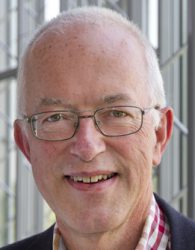
I have been working for a long time with initial fulltime students and with full-employed adult students as well. A bigger difference cannot be fancied. For young students encountering each other at the campus and participating in student’s life is mandatory and time-consuming. Most elder students enter university for work-related reasons, varying from curiosity to the need to compensate missing knowledge or to be graded higher. But they want to be spared of the bustle of campus life.
The role of experience
Besides differences in motivational background, differences in experience play a significant role. Adult students excel in practical experience and tacit knowledge. Smart use of this knowledge allows a significant faster progression through the program. Unfortunately, this seldom happens because most teachers usually are not acquainted with this kind of knowledge.
 According to pragmatist philosophers both reason and experience are involved in becoming acquainted with the world. Educators like John Dewey and Eduard Lindeman have studied the impact of this vision on education. The best-known contemporary theorists of adult learning, Malcolm Knowles (1990) has build on the shoulders of these giants.
According to pragmatist philosophers both reason and experience are involved in becoming acquainted with the world. Educators like John Dewey and Eduard Lindeman have studied the impact of this vision on education. The best-known contemporary theorists of adult learning, Malcolm Knowles (1990) has build on the shoulders of these giants.
Elaborating on students’ experience is subordinated to learning of concepts and theories. This practice is rooted in the rationalist mainstream in western thinking about knowledge and education, As a consequence the seminal work of Knowles is relatively unknown, hence a brief explanation of his thoughts.
Knowles’ theory of adult learning can be summarized in six learning principles:
- Adult learners are internally motivated and self-directed in the first place. The most occurring motivations are job-satisfaction and self-esteem and occasionally, the acquisition of better income.
- Adult learners will use their own experiences and prior knowledge as frames of reference while acquiring new knowledge. Their experience is the most important source of knowledge but they highly appreciate new knowledge that brings additional insight in and structure of their experience. They expect a personalized approach in order to cope with their own experience and learning needs.
- Adult learners are goal-oriented: Their eagerness to learn correlates with the satisfaction of their self-defined learning needs.
- Adult learners are relevancy-oriented: Learning is functionally related to cope effectively with real-life situations in the present or near future. In case of lectures, they expect a prior account of their relevance.
- Adult learning is practical: Adults prefer a task-centred or problem-centred approach in learning, directly related to better performance of their own tasks.
- Adult learners want to be respected and trusted. They appreciate if teachers tune their teaching with their situation and they hate being put-down and not taken serious.
A dedicated curriculum for adult students will improve the efficacy of their learning taking into account these characteristics. However, in most universities students are mixed or curricula for fulltime and parttime students are copies. How will a curriculum for adult learners look like?
The attainment of higher education objectives by adult learners
- Knowledge and application

Taken into account Knowles’ learning principles, learning of scientific concepts and theories occurs in the context of application. As a consequence, the attainment of the first and second Dublin descriptors (knowledge and its application) is an integrated process, starting with meaningful cases reflecting students’ experience. Subsequently, scientific concepts are introduced as conceptual tools for structuring and deepening experience. This does dot imply that each student’s experience always must be made explicit. Curriculum developers can suffice with interviewing a sample of prospective leaners and collect a set of relevant experiences. A variety of didactic models can be deployed, like problem-based learning, case studies and group discussions. Short lectures will do to introduce concepts and theory. Teaching can take place in classrooms or at distance.
- Critical thinking
The development of critical thinking skills (third Dublin descriptor) requires a different approach: Here a learning sequence starts with a real life problem that has to be analysed, evaluated, or solved. In the beginning students do not have any clue, which theoretical concepts might be helpful. Adult working students will recognize the problem because of their tacit knowledge.
Projects offer the best opportunity for students to go through this process. Adult students might be allowed to elaborate problems that they have encountered in their own practice. For them, the conceptualization of the problem with scientific concepts is new and exiting. The supervision of projects is challenging as knowledge of one or more disciplines, methodological expertise and in-depth knowledge of the working environment are required. The combination of these abilities in one person is rare in an academic environment.
Developing business education capabilities in learning networks

Ability to bridge the gap between theoretical, practical and tacit knowledge is a major requirement for viable business education. No single university or other organization has the capabilities that are needed to achieve this goal. Collaborative learning networks have to come in place and universities might be able to contribute significantly. The development of a learning network with participants from different angles (companies, not-for profit organizations, consultants, government and universities) is a necessary step to develop and supervise dedicated academic education and for doing research and initiating innovation as well.
Knowles, M.S. (1990). The adult learner. A neglected species. Houston TX: Gulf Publishing.





